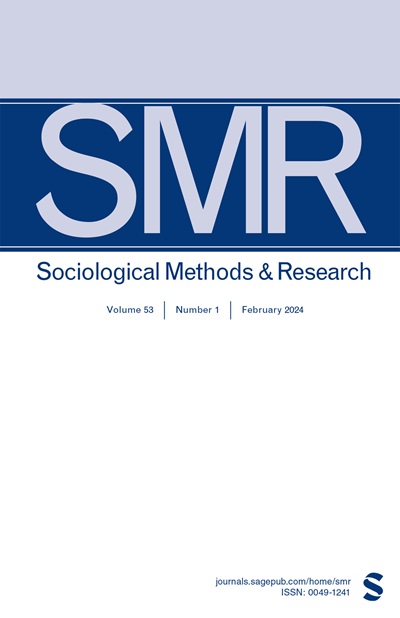敏感调查中作弊检测的新方法:作弊检测三角模型
IF 6.5
2区 社会学
Q1 SOCIAL SCIENCES, MATHEMATICAL METHODS
引用次数: 3
摘要
间接提问技术,如随机回答技术,旨在控制敏感话题调查中的社会期望偏差。为了改进以前的间接提问技术,我们提出了新的作弊检测三角模型。类似于作弊检测模型,它包括一个检测指令不遵守的机制,类似于三角模型,它使用简化的指令来提高受访者对程序的理解。在与作为外部标准的敏感属性的已知流行率进行比较的基础上,我们报告了作弊检测模型、三角模型和作弊检测三角模型的首次个人级验证。此外,还评估了所有模型的敏感性和特异性,以及受访者对所有提问技术形式的主观评价。根据我们的研究结果,作弊检测三角模型似乎是所研究的间接提问技术中的最佳选择。本文章由计算机程序翻译,如有差异,请以英文原文为准。
A New Approach to Detecting Cheating in Sensitive Surveys: The Cheating Detection Triangular Model
Indirect questioning techniques such as the randomized response technique aim to control social desirability bias in surveys of sensitive topics. To improve upon previous indirect questioning techniques, we propose the new Cheating Detection Triangular Model. Similar to the Cheating Detection Model, it includes a mechanism for detecting instruction non-adherence, and similar to the Triangular Model, it uses simplified instructions to improve respondents’ understanding of the procedure. Based on a comparison with the known prevalence of a sensitive attribute serving as external criterion, we report the first individual-level validation of the Cheating Detection Model, the Triangular Model and the Cheating Detection Triangular Model. Moreover, the sensitivity and specificity of all models was assessed, as well as the respondents’ subjective evaluation of all questioning technique formats. Based on our results, the Cheating Detection Triangular Model appears to be the best choice among the investigated indirect questioning techniques.
求助全文
通过发布文献求助,成功后即可免费获取论文全文。
去求助
来源期刊

Sociological Methods & Research
Multiple-
CiteScore
16.30
自引率
3.20%
发文量
40
期刊介绍:
Sociological Methods & Research is a quarterly journal devoted to sociology as a cumulative empirical science. The objectives of SMR are multiple, but emphasis is placed on articles that advance the understanding of the field through systematic presentations that clarify methodological problems and assist in ordering the known facts in an area. Review articles will be published, particularly those that emphasize a critical analysis of the status of the arts, but original presentations that are broadly based and provide new research will also be published. Intrinsically, SMR is viewed as substantive journal but one that is highly focused on the assessment of the scientific status of sociology. The scope is broad and flexible, and authors are invited to correspond with the editors about the appropriateness of their articles.
 求助内容:
求助内容: 应助结果提醒方式:
应助结果提醒方式:


